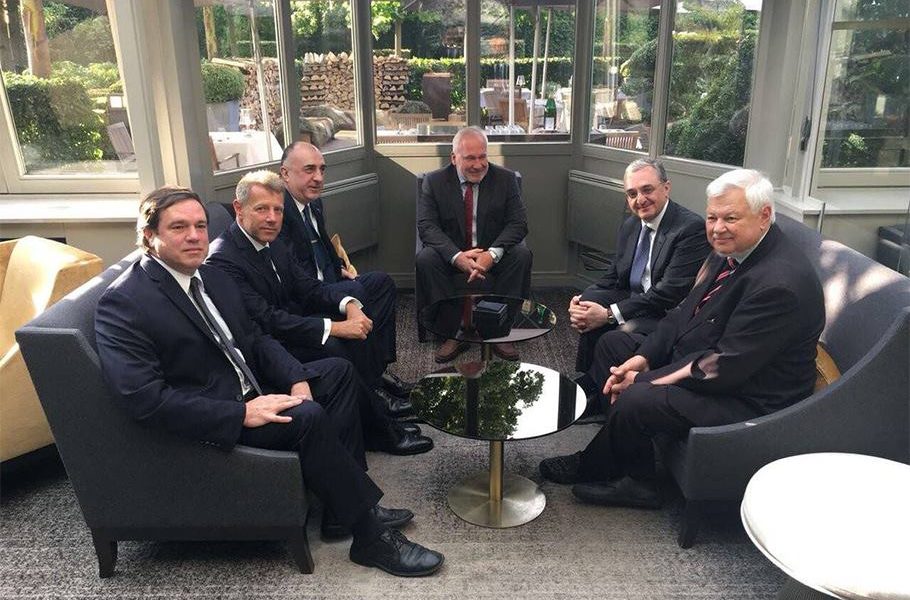The United Nations has adopted five resolutions concerning the Nagorno-Karabakh conflict. These resolutions, four of which were passed in 1993, have repeatedly demanded the immediate, complete and unconditional withdrawal of the Armenian forces from the occupied territories and the creation of necessary conditions for the return of displaced persons. The stipulations contained in the Resolutions have been ignored by the separatist regime. Furthermore, whilst the West was willing to police violations of international law in Darfur and the Balkans, it exercises blatant double standards over the gross breaches evident in Nagorno-Karabakh.
Instead, a group was formed in 1992 under the auspices of the UN to act as a mediator between the two sides – the Minsk Group. This Group is co-chaired by Russia, the US and France, meets regularly and continues to seek conflict resolution. The Minsk Group is so-called because one of the core objectives of the Group is to convene a conference between Azerbaijan and Armenia in the city of Minsk. The objectives of the Group – neither of which has been achieved – are stated as follows:
- Providing an appropriate framework for conflict resolution in the way of assuring the negotiation process supported by the Minsk Group;
- Obtaining conclusion by the Parties of an agreement on the cessation of the armed conflict in order to permit the convening of the Minsk Conference; promoting the peace process by deploying OSCE multinational peacekeeping forces.

The fact that Russia remains an economic and military ally to Armenia clearly has an effect on the ability of the Minsk Group to act objectively over Nagorno-Karabakh. Russia also operates two military bases within Armenia and continues to supply it with arms. In addition, powerful Armenian lobbying has resulted in the United States giving Armenia nearly $2 billion over the last sixteen years – more than any other former Soviet state. The Armenian lobby in the West exercises disproportionate influence due to the large Armenian Diaspora and the leverage provided by the so called ‘Armenian’ genocide which should not unduly bias the interpretation of the situation in Nagorno-Karabakh. Given these deeply entrenched geopolitical imperatives, it is feared that independent arbitration of the Nagorno-Karabakh conflict is not being delivered.
As recently as March 2008, the UN General Assembly called again for the complete withdrawal of Armenian occupying forces from Nagorno-Karabakh, reaffirmed Azerbaijan’s territorial integrity to the region, the inalienable right of the Azerbaijani population to return to their homes, and stated that no country should recognise as lawful the situation resulting from the occupation of Azerbaijan’s territories, or render assistance in maintaining that situation.
As evidenced by this latest resolution, there is international recognition that the territory of Nagorno-Karabakh remains officially part of Azerbaijan, and that the Armenian invasion, and subsequent settlement, of the region particularly during the early 1990s, was a clear violation of international law. This is an undisputed fact, and yet the Armenian Government continues to portray Armenia as the ‘victim’ in this conflict, in order to justify their military presence towards the international community.
